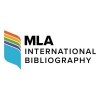Research Article
Aim & Scope
Studies on Turkish Language and Literature in the Balkans (BALTED) aims to present academic studies on Turkish language and literature in the Balkans for the evaluation of academicians of the relevant field and to meet the publications in question to meet the academic periodical needs in the field. In line with this main purpose, we can summarize the medium and long term goals of the journal in the following articles:
- To publish the publications, which starts with the e-journal format, in the following process.
- To publish compilation books from articles in common subject areas at intervals of 3-6 years.
- To ensure that certain issues are published as 'special issues' with a dedication to important names in the Turkish literature in the Balkans.
- To publish articles promoting academic studies in Turkish language and literature in Balkan countries.
- To follow the Turkish language and literature studies in the Balkans.
- To publish any scientific study in Turkish (all Turkic dialects) or international languages that will contribute to the theoretical and methodological development of the field of "Turkish Language and Literature in the Balkans".
- To contribute to the publication, promotion, dissemination of the studies and researches that will serve as a bridge in the field of Turkish language and literature in the Balkans and meeting with the target readers.
Balkan Turks (Bulgaria, Moldova / Gagauzia, Kosovo, Montenegro, N. Macedonia, Northern Cyprus, Southern Cyprus, Romania, Serbia, Greece / Western Thrace, etc.) and communities in Bosnia and Herzegovina, Albania and other regions, all or one aspect of which is related to the Balkan area, Turkish language, Turkish literature, education, training, Turkology researches are in the review and evaluation area of the journal. In the pre-Ottoman, Ottoman period and post-Ottoman period, the Turkish language of the Balkan lands and its product field Turkish literature studies are within the scope of the studies to be included in the journal. These literary studies can be in the field of folk literature, classical literature and contemporary literature.
Balkan Turks, their language and literature, unlike Turkish literature in other parts of the Turkic world, lack a certain state and academic support. At this point, Turkey, which has rich historical and cultural ties with the Balkan lands, has assumed an important role. In recent years, especially the increase in researches on Balkan Turks necessitates that these studies should be carried out at a certain academic level and within a scientific framework. BALTED (Studies on Turkish Language and Literature in the Balkans) is active in the field of Turkish language activities and literary productions of Balkan Turks. BALTED is a peer-reviewed, scientific publication established to support the studies in the field in question and to gain a scientific quality. It is published semi-annually (in January and July) and twice a year.
Author Guidelines
The manuscripts submitted to Studies on Turkish Language and Literature in the Balkans should be uploaded as MS Office Word document (".docx"). No special typesetting should be done in the article document. The document should be edited and submitted only according to the following spelling rules. Times New Roman font should be used in the text. Sections such as the title and author information are converted during the typesetting stage.
Title: It should be a title compatible with the content. The title should not exceed 12 words, should be written in bold font with only the first letters capitalised and 12-point font size. The English title (or second/translated title) should be italicised, in 11-point font size, below the title. If the article was presented at an event such as a symposium, this information should be written in a footnote after the article title. If the article is a translation from another language, the original name and original language of the study should be written in a footnote after the article title.
Author Information: The first letter of the first name should be written in 11-point font, the rest in 9-point font, and the surname should be written in all capital letters in 11-point font under the title, right justified, in bold font. The author's information should be indicated in the footnote (*) as "title / (if have) institution, (if have) department or unit in the institution, city/country, e-mail address, ORCID number" in 9-point font size. Before the evaluation process of the article, this personal information is deleted, and the article is sent to the referee.
Abstract: Turkish (or in original language of article) abstract should be 150-200 words in lower and upper limits. The abstract in English (or second/translated abstract) should be 150-250 words at the lower and upper limits. Turkish articles should include an English translation of the abstract; articles written in other Turkic dialects than Turkiye Turkish, English and Russian should include a translation or transcription of the abstract into Turkish.
Keywords: It should consist of at least 5 keywords (or word groups) in the languages and dialects required by the rules defined in the abstract, taking into account the terminology of the relevant field of science.
Text of Article: Manuscripts should be written on A4 size pages, single-spaced, in "Times New Roman" font and 11-point font size. In the indent tab, the first line indent of the paragraph should be "0.6 cm" and other paragraph settings should remain 0. Spacing should be entered as "2 pt" before and after and line spacing should be entered as "single". Footnotes should be written in 9 pt, single paragraph spacing.
Quotations: Quotations should be given in italic letters and in quotation marks; quotations less than five lines should be written between the lines, and quotations longer than five lines should be written one centimetre from the right and left of the line, in blocks and single-spaced.
Page Layout:
Margins: Top: 3 cm, bottom: 2.5 cm, left: 2 cm, right: 2 cm.
Binding gutter: 0.2 cm, left.
Header: 2 cm.
Bottom information: 1.25 cm.
Paragraph head: 0,6 cm.
Paragraph spacing: 2nk Line Spacing, before and after
Line spacing: Single
Use of Tables and Graphics:
1. Tables and graphics in the text should be prepared in 9-point font size.
2. Tables and graphics to be presented as an appendix outside the text should be given under the heading "Appendices" after the bibliography.
3. Table numbers and names should be written at the bottom, and the source description from which this information is taken should be written in brackets. Example: "Table 1: Spoken languages of Montenegro."
4. Tables, graphics and illustrations should not exceed 10 pages.
Bibliography:
The citations of sources written in alphabets other than the Latin alphabet should be placed after the citations list in the Latin alphabet (as continued).
* If the author name is not mentioned in the text
(Author surname, year, page)
“Türkçenin Balkan coğrafyasındaki komşularından biri Karadağlıcadır.” (İğci, 2020, s. 18).
* If a general reference is made in the text
(Author surname, year)
Balkanlarda gelişen yeni Türk edebiyatları genel anlamda üç evrede teşekkül eder (Yenisoy, 2013).
* If the author's name is in the text
(Year, page)
If the author's name is mentioned in the text, it is given after the author's name:
Ertuğrul Karakuş (2019, s. 23), “Türker’in özellikle de ayrıntılı bilgi isteyen roman ve biyografi türündeki eserlerinde yazarın gazeteci ve araştırmacı yönü dikkat çeker.”.
* Anonymous work
If the author of the cited study is not known, the name of the study is written. If the name of the study is given in the text, it should be written in italics.
Diğer bir kaynakta (Dünyada Memurlar ve Sendika, 1996, s. 55) da belirtildiği gibi…
The author's name can also be accepted as "Anonymous" in works whose author is not known. In this case, "Anonymous" should be written in the author's name in the bibliography section.
Diğer bir kaynakta (Anonim, 1996, s. 55) da belirtildiği gibi…
* More than one work by the same author
Gonca Kuzay Demir, Kosova’da Türk kültürünü yaşatmanın en güçlü yollarından birinin de yüzyılların birikimi olan sözlü kültür ürünleri ve diğer kültürel birikimin genç kuşaklara aktarılması olduğunu (2019, s. 339), bu anlamda da Kosova Türk masalları ve masal anlatma geleneğinin büyük bir görev üstlendiğini ifade eder. (2020, s. 128).
* Different works by the author in the same year
When referring to more than one work of the author published in the same year, phrases such as "a, b, c" should be placed after the publication date:
Atilla Jorma, Oğuz boylarının Balkanlarda meydana getirdikleri dil ve edebiyat faaliyetlerinin Kuzey Azerbaycan sahası ile ortaklık arz ettiğini belirtir (2010a, s. 77).
* Study with two authors
If the author's name is mentioned in the text:
Akgün ve Kumsar, mübadil Türklerin romanlarındaki millet algısının hümanist ve milliyetçi söylem üzerinde ikiye ayrıldığını belirtir (2018, s. 18).
If the author's name is not mentioned in the text:
Mübadele’nin edebiyata ve özellikle romana yansıması Rumlar arasında Türklerden daha önce görülür.” (Akgün-Kumsar, 2018, s. 19).
* Multiple authored work
In studies with three, four or five authors, if the surnames of the authors are mentioned in the text in the first citation:
All authors are written. The conjunction "and" is used before the last author:
2011’de Oğuz, Ekici, Aça, Düzgün, Akarpınar ve Eker folklor terimi ve disiplinin Avrupa sosyal ve kültürel hayatının değişim ve dönüşüm süreçlerinin bir sonucu olarak ortaya çıktığını ve dünyaya yayıldığını ifade etmektedirler (s. 1).
In subsequent citations, if the author's name is mentioned in the text:
First author's surname, "et al."
2011’de Oğuz, vd. folklor terimi ve disiplinin Avrupa sosyal ve kültürel hayatının değişim ve dönüşüm süreçlerinin bir sonucu olarak ortaya çıktığını ve dünyaya yayıldığını ifade etmektedirler (s. 1).
If the author's name is not mentioned in the text in studies with multiple authors:
(Oğuz vd., 2011, s. 1).
* Indirect quotations
If an indirect citation is to be made, the original source person is written in the text; the secondary source person is indicated in brackets.
Umay Günay, masalların insan hayatını yansıtan anlatılar olduğunu söyler (Günay’dan aktaran Demir, 2019, s. 3).
* Corporate author
Türkçe Sözlük’e göre (2011), …
* Authors with the same surname
(First letter of the author's name, surname, year, page)
Türk destanlarında aile algısında ad verme ve ad biliminde ad verme… (H. İ. Özkan, 2011, s. 21; İ. Özkan, 2014, s. 43).
* Two or more references to the same information
(Author surname, year, page; author surname, year, page)
Birlik gazetesi, 1994’ten beri Üsküp’te çıkmaktadır (İsen, 1997, s. 34; Hayber, 2011, s. 42).
* Hardcover study
Page number and date are indicated. Only the cited volume is written:
Makedonya, Osmanlı döneminden kalan Türk izlerini en geniş ölçüde ayakta tutmayı becerdi (Hamzaoğlu, 2010, s. 279).
Multi-volume works:
(Pflanze, 1963-1990).
* New edition of a previously published work
(Şimşir, 1986/2012).
* Anthology work
The work is mentioned directly, not the anthology or the editor.
"Name of the anthology" (year).
Bulgaristan’da çağdaş dönemde yazılan şiirler, Nimetullah Hafız tarafından hazırlanan “Bulgaristan’da Çağdaş Türk Edebiyatı Antolojisi”nde (1987) örneklenmektedir.
* Encyclopaedias
(Balkans: History, 1987).
• Dictionaries
(Karasu, 2019).
* Texts in electronic media
* Video or film
(Name of the film, year)
(Dedemin İnsanları, 2011).
Video veya filmin herhangi bir saatine, dakikasına veya saniyesine atıfta bulunurken şu şekilde verilir:
(00:02:15-00:02:35)
• Podcast / YouTube
Eğer video/podcast yazar adı, unvanı, kayıt tarihi varsa belirtilmelidir. Saat, dakika, saniye olarak referans edilmek istendiğinde şu şekilde verilmelidir:
(00:02:15-00:02:35).
Orçun Madran “BBY 262 Web tasarımı dersi uygulaması”nda (2015) web sayfası tasarımının nasıl olacağı ile ilgili bilgi vermektedir.
* Lecture, speech, conference
Akgün tarafından Balkanlarda Türk Edebiyatları (Dün, Bugün, Yarın) Konferansı'nda (2017) Balkanlarda teşekkül etmiş Türk edebiyatı tarihi dönemlere göre tasnif edilerek sunulur.
* Other sources
* Newspaper
Ethem Ruhi, Tuna boyundaki şehirlerdeki Türk eğitim faaliyetlerinin öğretmen teşkilatlarının kuruluşundan sonra güçlendiğini belirtir (Deliorman, 1912).
• The order should be arranged alphabetically according to the surnames of the authors and/or the titles of the sources whose authors are unknown.
• When writing the publishers and publishing houses of the works included in the bibliography, the full name of the relevant institution should be written.
• If more than one publishing house is shown, all of them should be stated by separating them with a semicolon.
• If more than one publication place is shown for the same publishing house, only the first one should be used.
• Page numbers should be stated in full in articles.
BOOK
Basic format for a book:
Author's last name, Initials. (Date of publication). Title of the book. Place of publication: Publisher.
• Single author book
Akgün, A. (2016). Balkan Türklerinin Muhacir Edebiyatı İncelemeleri. Ankara: Grafiker.
Hünerli, B. (2019). Mihail Çakir'in Rumence-Türkçe Sözlüğü (İnceleme-Metin). Çanakkale: Paradigma Akademi.
İğci, A. (2019). Karadağ Türk Ağzı. Ankara: Gazi Kitabevi.
Karakuş, E. (2014). Makedonya Türk Edebiyatı’nda Üçüncüler. Üsküp: Yeni Balkan Yayınevi.
• A book with multiple editions
Kafesoğlu, İ. (2016). Türk Millî Kültürü [40. baskı]. İstanbul: Ötüken Neşriyat.
• Multi-author book
Oğuz, Ö., Ekici, M., Aça, M., Düzgün, D., Arslan, M., Eker, G. Ö. (2011). Türk Halk Edebiyatı El Kitabı. Ankara: Grafiker Yayınları.
• Two or more works of same author
Sorted from top to bottom by year.
Hafız, N. (1989). Makedonya Türk Halk Edebiyatı Metinleri. İstanbul: Anadolu Sanat.
Hafız, N. (1990). Bulgaristan Türk Halk Edebiyatı Metinleri 1. Ankara: Kültür Bakanlığı.
• Two studies by the same author published in the same year
İnan, A. (1976a). Eski Türk Dini Tarihi. Ankara: Kültür Bakanlığı.
İnan, A. (1976b). Tarihte ve Bugün Şamanizm Materyaller ve Araştırmalar. Ankara: Türk Tarih Kurumu Yayınları.
• Anonymous book
If the author is unknown, the name of the work is given.
Manas. (1995). Ankara: TİKA.
• Translated book
Kandes, I. V. (2008). Kuruluşundan XIX. Yüzyıl Sonlarına Kadar Bursa (İbrahim Kelağaahmet, Çev.). Bursa: Gaye. (Orijinal eserin yayın tarihi 1995).
Ligeti, L. (1986). Bilinmeyen İç Asya (Sadrettin Karatay, Çev.). Ankara: Türk Dil Kurumu Yayınları. (Orijinal eserin yayın tarihi 1995).
Todorova, M. (2015). Balkanlar’ı Tahayyül Etmek (Dilek Şendil, Çev.). İstanbul: İletişim. (Orijinal eserin yayın tarihi 1995).
Zelengora, G. (2017). Türkiye’deki Pomaklar (Zeynep Zafer, Çev.). Ankara: Türk Tarih Kurumu Yayınları. (Orijinal eserin yayın tarihi 1995).
• Whole edited book
Karatay, O., Gökdağ, A. B. (Ed.ler) (2013). Balkanlar El Kitabı 1. Cilt: Tarih. Ankara: Akçağ.
• Chapter in an edited book
Argunşah, M. (2019). Gagauz Türkologlar: Gavril A. Gaydarcı. Ahmet Buran (Ed.), Türkiye Dışındaki Türk Dünyası Türkologları içinde (s. 405-413). Akçağ.
Horata, O. (1999). Romanya Yazılı Türk Edebiyatı. Türkiye Dışındaki Türk Edebiyatları Antolojisi Romanya ve Gagavuz Türk Edebiyatı içinde (s. 13-20, 94-167). Kültür Bakanlığı Yayınları.
Özkan, N. (2007). Gagavuz Türkçesi. Ahmet Bican Ercilasun (Ed.), Türk Lehçeleri Grameri içinde (s. 81-170). Akçağ.
Pars, M. (2011). Bosna Hersek’te Gelişen Boşnak, Sırp, Hırvat ve Yahudi Edebiyatları. Osman Karatay (Ed.), Balkanlar El Kitabı içinde (s. 231-263). Akçağ.
• Only electronic printed book
O'Keefe, E. (t.y.). Egoism & the cnsts in Western values. http://www.onlineoriginals.com/showitem .asp litem I 135
• Electronic version of the printed book
Akgün, A. (2016). Bulgaristan Türkleri Çocuk Edebiyatı. Ankara: Bengü. [Adobe Acrobat Reader sürümü]. Erişim adresi: http://www.atifakgun.com/images/Bulgaristan_turkleri
_cocuk_edebiyati.pdf
ARTICLE / ELECTRONIC ARTICLE
Basic format for an article:
Author's surname, Initials. (Date of publication). Name of the article. Journal, Volume (Issue), first page-last page.
• Single author article
Aksoy, Ö. (2020). Mustafa Imamović’in Boşnakların Tarihi (Historija Bošnjaka) Adlı Kitabı ve Türkçe Tercümesine Dair Tespit ve Değerlendirmeler. Balkanlarda Türk Dili ve Edebiyatı Araştırmaları, 2(1), 133-142.
Arslan, A. (2014). Atatürk Döneminde Romanya’dan Türk Göçleri ve Göçmenlerin Türkiye’de İskanları. Turkish Studies, 9(4), 31-50.
Urhan, V. C. (2015). Karadağ’da Osmanlı Hâkimiyetinin Zayıflaması (17. ve 18. Yüzyıllar). Balkan Araştırma Enstitüsü Dergisi, 4(2), 113-135.
Yıldız, C. S. (2025). Türkçede “Karadağlıca” Dil Adının Kullanılışına Dair. Balkanlarda Türk Dili ve Edebiyatı Araştırmaları, 7(1), 33-44.
• Multi-authored article
Hoca, F., Arizankovska, L. (2014). Makedonca-Türkçe Arasındaki Kültür Etkileşmede Dil Unsurunun Önemi. Hikmet, 12(24), 28-43.
Hünerli, B., Arnaut, T. (2017). Ukrayna Gagauzları. Tehlikedeki Diller Dergisi, 7(11), 17-50.
Uçkun, R., Karakuş, E. (2014). Balkan Türkleri Edebiyatı ve Halk Kültürünün Türkiye’deki Üniversite Eğitiminde Yer Almasının Gerekliliği Üzerine Bazı Tespitler. TÜRÜK Uluslararası Dil, Edebiyat ve Halkbilimi Araştırmaları Dergisi, 2(3), 135-157.
OTHER SOURCES
• Wikipedia articles
Balkanlar. (2013, 28 Ocak) Vikipedi içinde. https://tr.wikipedia.org/wiki/Balkanlar
• Electronic newspaper articles
Emin, R. (2020, 11 Haziran). Makedonya ve Osmanlı Öncesi Türkler. Balkan Günlüğü. https://balkangunlugu.com/2020/05/makedonya-ve-osmanli-oncesi-turkler/
• Multi-volume works
Hamzaoğlu, Y. (2010). Balkan Türklüğü (Cilt 1-3). Üsküp: Logos A.
• Use of single volume in multi-volume studies
Hamzaoğlu, Y. (2010). Balkan Türklüğü Cilt 1. Makedonya, Hırvatistan, Osmanlı Öncesi Balkan Müslümanlığı. Üsküp: Logos A.
• Unpublished dissertations or theses
Özkan, İ. (2008). Bulgaristan Türkleri Halk Edebiyatı Üzerine Bir Araştırma [Yayımlanmamış doktora tezi]. Ege Üniversitesi.
Balat, G. (2018). Makedonya-Kanatlar Köyü Folkloru Üzerine Bir İnceleme [Yayımlanmamış yüksek lisans tezi]. Ege Üniversitesi.
Demir, G. K. (2013). Kosova Türk Halk Şiiri (İnceleme-Metinler) [Yayımlanmamış doktora tezi]. Ege Üniversitesi.
Kara, A. O. (2019). Batı Trakya Türk Cumhuriyeti’nin Kuruluşu, Faaliyetleri ve Lağvedilişi [Yayımlanmamış yüksek lisans tezi]. Mimar Sinan Güzel Sanatlar Üniversitesi.
• Encyclopedias
Balkans: History. (1987). Encyclopaedia Britannica içinde (15. baskı. Cilt. 14, s. 570-588). Chicago: Encyclopaedia Britannica.
Halaçoğlu, Y. (1992). Batı Trakya. Türkiye Diyanet Vakfı İslam Ansiklopedisi içinde. (Cilt 5, s. 144-147). İstanbul: Türkiye Diyanet Vakfı.
Kiel, M. (1998). Hezargrad. Türkiye Diyanet Vakfı İslam Ansiklopedisi içinde. (Cilt 17, 297-300). İstanbul: Türkiye Diyanet Vakfı.
İnalcık, H. (2008). Rumeli. Türkiye Diyanet Vakfı İslâm Ansiklopedisi içinde. (Cilt 35, 232-235). İstanbul: Türkiye Diyanet Vakfı.
• Dictionaries
Zafer, Z. (2018). Türkçe-Bulgarca Sözlük [1. baskı]. Ankara: Türk Dil Kurumu Yayınları.
• Corporate writer
American Psychological Association. (2005). ...
• Interview
Ozansoy, G. (1967). “Bizde Bir Bunalım Edebiyatı Yok”. Cemal Süreya ile Söyleşi. Haber Gazetesi, 19 Şubat 1967. Erişim Tarihi: 4 Şubat 2020, https://www.cafrande.org/soylesi-bunalim-edebiyati/
• Film
Irmak, Ç. (2011). Dedemin İnsanları [Film]. Türkiye: Most Production Ay Yapım.
• Other internet sources
İnternette 1 Saniyede Neler Oluyor? (2017, 4 Ocak). Erişim adresi: http://www.ntv.com.tr/galeri/teknoloji/internette-1-saniyede-neleroluyor,
XUH_UVqM80GODfAK20z__Q/mfBzmt1kgUm2CCL1b5iFfg
Submission of Articles:
Articles prepared in accordance with the principles stated above are sent through the DergiPark system (via the internet address https://dergipark.org.tr/tr/pub/balted). Articles that do not contain abstracts, keywords are not taken into consideration. Along with the translations and quotations, a copy of the original text from which the translation or quotation was made must be added to the copies sent for publication. If a different font is used in the article and explanations, this must be stated, and the font must be sent with the article. Candidate articles are checked with a plagiarism program during the pre-control phase and those found negative are rejected without evaluation. Articles that do not receive a positive report from the referees cannot be published; administrative and judicial responsibility is not accepted in this regard. If corrections are requested by the referees, the author must send the text with the corrections made through DergiPark. All correspondence regarding the articles is carried out through DergiPark.
Ethical Principles and Publication Policy
ETHICAL PRİNCİPLES
Authors, editorial board and referees involved in the publishing process should make decisions in accordance with ethical principles. Turkish Language and Literature Studies in the Balkans has set standards that all parties expect to comply in order to guarantee ethical principles. As a publisher, Turkish Language and Literature Studies in the Balkans takes its task very seriously at all stages of publishing and accepts all its responsibilities, including ethics.
Author Policies:
Turkish Language and Literature Studies in the Balkans does not request a signed application letter from all authors of an article and does not make applications that give orders to the authors. Authors applying to the journal for publication are expected to voluntarily comply with the ethical principles determined by the Publication Ethics Committee (COPE). Plagiarism, forgery, duplicate publication, bragging, data production etc. are prohibited in Turkish Language and Literature Studies in the Balkans.
1) Authors should not cause physical and legal harm to the participants of the research. They should not engage in any form of psychological abuse and should guarantee privacy and any form of anonymity to those participating in their research.
2) Authors must confirm that the works submitted to the journal are original.
3) Authors must confirm that their works have not been published before and that they have not submitted them for evaluation for publication elsewhere after applying to the Turkish Language and Literature Research in the Balkans.
4) Authors should define and indicate the sponsorship and support of people, institutions or organizations that support their work.
5) Authors should include all sources used in the formation of their manuscripts in their bibliography.
6) Authors must confirm that they do not hide or change any information, document or evidence in their works submitted to the journal.
7) Authors should report any interest (conflict, interest) about their works to Turkish Language and Literature Studies in the Balkans.
8) The author, who realizes that there is an important mistake or problem in his work in the process of evaluation or publication, must immediately notify the editor of the journal and cooperate with the editor for options such as retracting the article or correcting it.
Editorial Board Principles:
The editor of Turkish Language and Literature Studies in the Balkans and members of the editorial board are expected to voluntarily comply with the ethical principles determined by the Publication Ethics Committee (COPE).
1) Plagiarism control is carried out using the iThenticate program for the articles sent for publication to the Turkish Language and Literature Studies in the Balkans. Authors should strictly avoid any form of plagiarism.
2) The Editorial Board should keep the information of any article sent for publication confidential.
3) The Editorial Board is responsible for conducting the evaluation and publication process for all kinds of articles sent for publication.
4) The Editorial Board should strive to improve the publication and representation quality of Turkish Language and Literature Studies in the Balkans. In this regard, it should give importance to scientific quality, originality and journal identity.
5) The Editorial Board should make efforts to increase the level of research in the field of study and to improve the literature.
6) The Editorial Board should be diligent in responding to the needs of readers and authors.
7) The Editorial Board should be ready to issue explanations, corrections, changes in decision and apologies when necessary.
Referee Principles:
Referees of Turkish Language and Literature Studies in the Balkans are expected to voluntarily comply with the ethical principles determined by the Publication Ethics Committee (COPE).
1) The referees should keep the information of any manuscript sent for publication confidential.
2) The referees should evaluate all kinds of articles in terms of scientificity.
3) The referees should notify the Turkish Language and Literature Studies in the Balkans of any conflict of interest for a paper they are appointed.
4) Referees must submit all information to the editor for a study they are in a position to reject.
5) The referees should evaluate the articles objectively.
6) The referees should make sure that the works to be published in the Turkish Language and Literature Studies in the Balkans are original and have not been published before.
7) The referees cannot submit the studies submitted to the journal for publication elsewhere.
PUBLICATION POLICY
Turkish Language and Literature Studies in the Balkans, and BALTED, with its short name, is an international, peer-reviewed, open access scientific journal aiming to present academic studies on Turkish language and literature in the Balkan field for the evaluation of relevant field experts and to bring together other scientists working in this field and the mentioned publications. It does not charge any fees from its authors and readers.
Articles that apply for publication to the journal are checked with a plagiarism program in terms of compliance with scientific ethics at the pre-control stage. Article submission is done through the DergiPark system, and the evaluation process of the articles is completed through the "DergiPark" system, taking into account objective criteria. The candidate article is taken into preliminary evaluation within 15 days. After the preliminary evaluation, the works that do not comply with the BALTED publication principles are returned to their authors. The waiting period for the article, for which two referees are appointed after the positive preliminary evaluation, is 30 days and the extension period is 7 days. In case of a positive and a negative report in the referee evaluation, the publication decision of the candidate article is made after the evaluation of the 3rd referee and 3/2 positive majority. All responsibility for the content of the articles in the journal belongs to the authors. All publication rights of the published articles belong to Turkish Language and Literature Studies in the Balkans.
Price Policy
Studies on Turkish Language and Literature in the Balkans, and BALTED, with its short name, is an international, peer-reviewed, open access scientific journal aiming to present academic studies on Turkish language and literature in the Balkan field for the evaluation of relevant field experts and to bring together other scientists working in this field and the mentioned publications. IT DOES NOT CHARGE ANY FEES FROM İTS AUTHORS AND READERS.
Indexes
Citation Indexes
Other Indexes
Journal Boards
Editor

Editorial Board
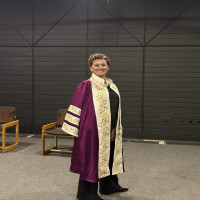
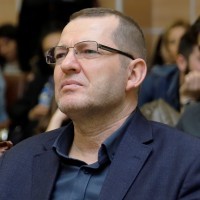
https://personel.trakya.edu.tr/ikelagaahmet
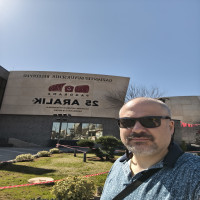
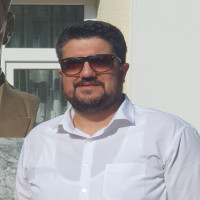
1999 yılında Şumnu Üniversitesi Rusça ve Türkçe Bölümünden mezun oldu.
2013 yılında Bulgaristan Bilimler Akademisi Etnoloji ve Halk Bilimi Enstitüsünde doktora tezini tamamladı ve 20214'te Şumen Üniversitesi Türk Dili ve Edebiyatı Bölümüne öğretim üyesi olarak atandı. 2020'de doçent unvanını aldı.
1967 Afyon-Sandıklı'da doğdum. İlk, orta ve lise öğretimimi Sandıklı'da tamamladım. 1985 yılında Ankara Üniversitesi Türk Dili ve Edebiyatı bölümünü kazandım. 1989 yılında mezun oldum. 1989-1993 yılları arası Posof Lisesi'nde, 1993-1994 Marmara Lisesi'nde, 1994-1998 Yılları arası Sandıklı Lisesi'nde Edebiyat öğretmenliği yaptım. 1998'den itibaren Afyon Kocatepe Üniversitesi'nde önce Okutman daha sonra Öğretim Görevlisi çalıştım. Ardından da Dr. Öğrt. Üyesi olarak atandım ve hala bu görevime devam edeyorum. 2001 yılında Afyon Kocatepe Üniversitesi Sosyal Bilimler Enstitüsü'nde Sandıklı ve Yöresi Ağız Özellikleri adlı tezimle yüksek lisansımı tamamladım. 2008 yılında Ege Üniversitesi / Sosyal Bilimler Enstitüsü / Türk Dünyası Araştırmaları Ana Bilim Dalı / Türk Halk Bilimi (Folklor) Bilim Dalı'nda Bulgaristan Türkleri Halk Edebiyatı Üzerinde Bir Araştırma adlı tezimi savundum ve Dr. Ünvanı aldım.

Taner GÜÇLÜTÜRK
(Biography)
Taner Güçlütürk was born on April 20, 1980, in Prizren. He completed his primary, secondary, and high school education in this city, and earned his bachelor’s and master’s degrees at the University of Pristina. In 2011, with his doctoral dissertation titled “Contemporary Turkish Literary Creativity in Kosovo Between 1951–2001”, he completed his PhD at the Department of Turkish Language and Literature, Faculty of Philology “Blaže Koneski,” Ss. Cyril and Methodius University in Skopje, obtaining the title of Doctor of Philological Sciences in the field of New Turkish Literature.
He began his career in journalism, program production, and broadcasting in 1999 with Turkish-language broadcasts at Radio Prizren, and later continued this work at the Yeni Dönem newspaper, radio, and television. In 2001, he received journalism training at a journalism school organized by the Vienna Radio and Television Corporation in Austria, and in 2006 he participated in a journalism training program held in the United States by the U.S. Department of State Education Institute. Between 1999 and 2009, he worked as a journalist, presenter, and program producer for numerous local, national, and international media organizations. In 2005, he was awarded Journalist of the Year in Kosovo by the Finnish Human Rights Kosovo Coordination Office and the Network of Human Rights Radios. He served as a member of the Kosovo Press Council between 2005 and 2006.
Between 2012 and 2016, he represented the Kosovo Turkish Community on the Advisory Council for Communities of the Presidency of Kosovo. In 2008, by decision of the Senate of the University of Pristina, he worked for five years as a lecturer in the Department of Turkish Language and Literature at the Faculty of Philology, where he taught courses such as Turkish Literatures, Literary Translation, and Fundamentals of Journalism, and conducted practical course work. After 2013, he served as a Turkish language instructor at the Kosovo Turkish Representation Office and at the Yunus Emre Institutes in Prizren and Pristina. From 2014 onward, he assumed responsibility for and production of Turkish-language broadcasts at Radio İpek.
Güçlütürk is also a research fellow at the Balkan Turkish Studies Research Center (BAL-TAM), headquartered in Prizren. He previously served as a board member of the Kosovo Turkish Journalists Association and the Kosovo Turkish Intellectuals’ Association. Since 2018, he has been the Kosovo representative and a member of İLESAM (Association of Science and Literature Works Owners of Turkey), and is also a member of the Writers Union of Turkey and the Eurasian Writers’ Union. He serves as the Chair of the Jury of the International “Süleyman Brina” Balkan Turkish Culture Service Award of the “Doğru Yol” Turkish Culture and Arts Association, and as Co-Chair of the Kosovo Turkish Writers Association.
His poems, essays, news articles, commentaries, and scholarly papers have been published in numerous journals and newspapers. In the fields of Turkology and related disciplines such as language, literature, folklore, and history, he has published more than 50 successful scholarly articles and research papers in national and international academic journals. In recent years, he has focused primarily on Contemporary Turkish Literature. His principal published works include:
Published Works
Translation: Dr. Taner Güçlütürk; Author: Jeton Kelmendi, How to Love, poetry book, Lulu Press, USA, 2011.
Taner Güçlütürk, Turkish Literary Creativity in Kosovo (1951–2001), scholarly research/doctoral thesis book, BAL-TAM Publications, Prizren, Kosovo, 2014.
Mourning Does Not Suit My Language, poetry book, Değişim Publications, Istanbul, May 2014.
Editor: Dr. Taner Güçlütürk, New Companions on the Road, a selection of young artists and talents in Kosovo’s literature, visual arts, and music, Kosovo Turkish Writers Association Publications, Prizren, 2015.
Editor and Translator: Dr. Taner Güçlütürk, Anthology of Contemporary Poetry in Kosovo, Kosovo Turkish Writers Association Publications, Prizren, 2016.
Editor: Dr. Taner Güçlütürk – Zeynel Beksaç, In the Footsteps of Verses in the Balkans, Kosovo Turkish Writers Association Publications, Prizren, 2016.
Translation: Dr. Taner Güçlütürk; Author: Nesim Ispahiu, The Taste of the Verse, poetry, March 2025, Prizren, Kosovo.
Translation: Dr. Taner Güçlütürk; Author: Nexhat Ibrahimi, Islam in Illyrian-Albanian Lands Through the Centuries, historical scholarly research, in translation, 2025, Prizren, Kosovo.
Translation: Dr. Taner Güçlütürk; Author: Vlora Ademi, Katërdhetë e pak, poetry, in translation, 2025, Prizren, Kosovo.
Translation: Dr. Taner Güçlütürk; Author: Milazim Krasniqi, Russian Roulette for Ali Pasha, drama, awaiting publication.
Translation: Dr. Taner Güçlütürk; Author: Naser Shatrolli, Garden Flowers, drama/comedy, staged at the Samsun Theatre Festival in 2024.
Books Edited and Prepared for Publication
(Here follows a list of 15 poetry, short story, and literary works edited by Güçlütürk between 2016 and 2025, published mainly by the Kosovo Turkish Writers Association in Pristina and Prizren.)
Active in civil society organizations engaged in cultural, artistic, and intellectual activities, Güçlütürk has carried out dynamic work on the current issues of his community and played an active role in preserving culture, art, national identity, and social values in the region. For these efforts, he has received numerous awards and commendations. Among them are the 1998 “Doğru Yol” Poetry Competition Award, the 2005 Journalist of the Year Award by the Finnish Human Rights Kosovo Coordination, second prize in poetry at the 2008 International Literature Competition in Obernai, France, the 2018 International Writers Association Literature Award (Brussels), the 2020 International “Süleyman Brina” Balkan Turkish Culture Service Award, the 2019 “Service to Turkology and Academic Award” by the Institute for the World of Turks (IfWT), the 2022 Prizren Municipality Writer of the Year Award, the 2022 “Best Poetry in Turkish Language” Award, the 2024 Ahmet Kabaklı Literature Medal by the Turkish Literature Foundation, and the 2025 “February 17 Independence Literature Award. In total, he has received ten national and international awards, in addition to hundreds of certificates of appreciation, plaques, and honors.
Güçlütürk has delivered numerous conferences and lectures internationally on topics ranging from Turkish journalism in the Balkans to contemporary Turkish literature, Balkan cultural identity, and Ottoman and modern literary traditions. He serves on the editorial boards of several international peer-reviewed journals in Turkology and literature in Kosovo, North Macedonia, and Turkey, and acts as a specialist in Contemporary Turkish Literature in the Balkans.
Over the past 25 years, he has represented Kosovo and the Kosovo Turkish Community at hundreds of congresses, symposiums, festivals, seminars, workshops, and conferences at local, national, and international levels. As a Turkologist, he has devoted sustained effort to preserving and advancing Turkish literature, culture, and art in the region. He has supported and mentored a new generation of Kosovo Turkish writers and poets, contributing to the preparation, publication, and promotion of their works, notably through the anthology New Companions on the Road.
In addition to literary creation, Güçlütürk has made significant contributions as a literary translator, introducing contemporary Albanian, Bosniak, Roma, and Gora literary creativity in Kosovo to Turkish readers through anthologies and translated works. His Anthology of Contemporary Poetry in Kosovo was purchased by the Kosovo Ministry of Culture in 2019 and distributed to libraries throughout the country.
Between 2014 and 2025, particularly within the framework of the Yunus Emre Institute, he successfully carried out numerous cultural and artistic projects. As Chair (2015–2016) and current Co-Chair of the Kosovo Turkish Writers Association, he has coordinated hundreds of literary and cultural events in cooperation with ministries, municipalities, embassies, cultural institutes, and civil society organizations in Kosovo, Turkey, Albania, and North Macedonia.
Currently, Güçlütürk continues his intensive research in New Turkish Literature, alongside ongoing studies in Turkology and related disciplines. His areas of interest also include Turkish–Albanian and Turkish–Bosnian translation, teaching Turkish to foreigners, history, cultural studies, folklore, history of education, and journalism.
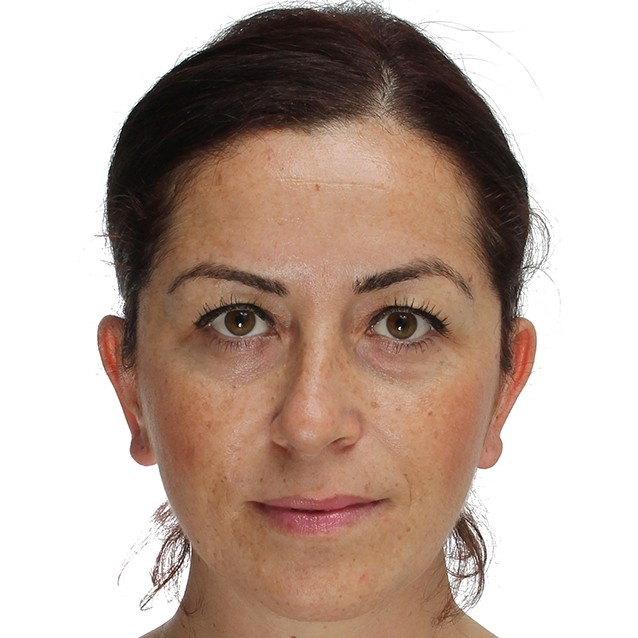

Hasan Neriman currently works at the Faculty of Letters, Universitatea Ovidius Constanţa. Hasan does research in Sociolinguistics, Philology and Interlinguistics. Their current project is the dynamics of the discourse of the competent institutions on the curricula of Turkish mother tongue and literature in pre-university classes


BALTED is licensed under a Creative Commons Attribution-NonCommercial 4.0 International License.


